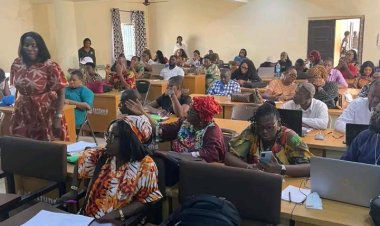Students Protest as Kwara University Moves Lectures Online Amid Rising Data Costs
Students Protest as Kwara University Moves Lectures Online Amid Rising Data Costs

Students of Ahman Pategi University in Patigi, Kwara State, have staged protests against the institution's recent shift to virtual lectures, citing the high cost of data and unreliable internet connectivity as significant barriers to effective learning.
The protests, which took place on Monday April 7, were fueled by the students' frustration over the transition to online classes without adequate consultation or infrastructure to support such a move. Many students expressed concerns that the university is being transformed into a virtual institution, contrary to the physical learning environment they were promised upon admission.
Usman, a 300-level student, voiced his dissatisfaction, stating, "We are rejecting virtual lectures. We are practically not having physical classes now. The management is indirectly turning the school into a virtual school. This is not a NOUN university. This is not what we were promised when we were offered admission. We started with physical classes."
The students' grievances are compounded by the recent increase in data tariffs approved by the Nigerian Communications Commission (NCC), which has led to higher operational costs for telecom companies and, consequently, more expensive data plans for consumers. This development has made it increasingly difficult for students to afford the necessary data to participate in online lectures.
In addition to the financial burden, students have reported that poor network connectivity often disrupts virtual classes, making it challenging to follow lectures and engage effectively with course materials. They also highlighted that the university was not originally approved as an e-learning center, raising questions about the legitimacy of the sudden shift to online education.





